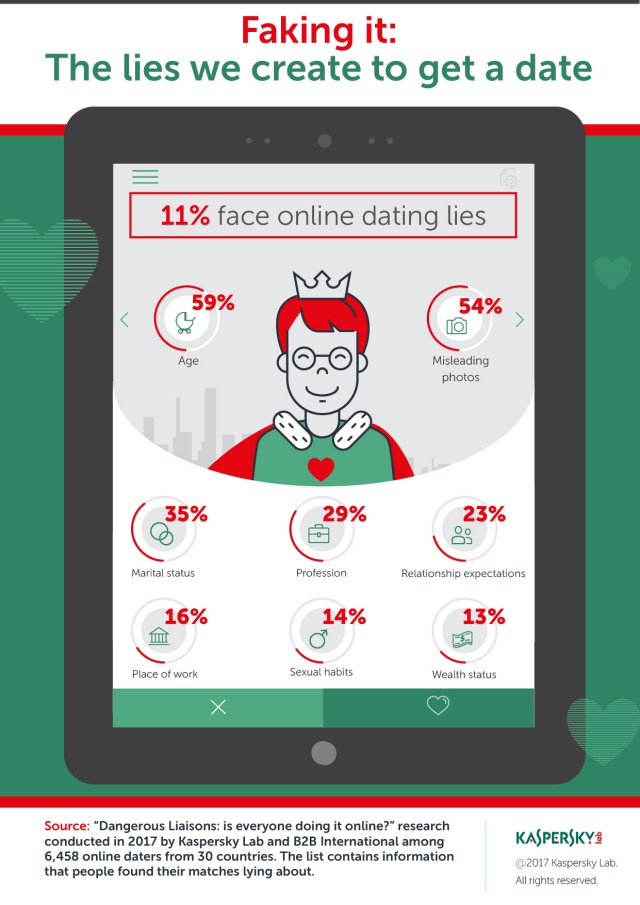Despite around one-in-three (31%) of people in South Africa using online dating services and apps, not everyone enjoys a positive experience. The latest research from Kaspersky Lab suggests that people looking for “the one” online might be disappointed – many have come across fake information and photos, malicious links, scammers trying to extort information from them, or other people lying about what they are looking for in a relationship.
The research found that those searching for their soulmate on online dating platforms – such as the likes of Tinder, Bumble, OK Cupid, Badoo and more – are in the minority, with just 10% locally using online dating to actually find a marriage partner. That’s compared to half (50%) of online dating users doing it for fun, and 19% simply looking for sex.
The online dating world is also rife with false information – something that may cause yet more problems for those actually looking for love. Over half (62%) of people locally admitted to lying while dating online – faking information to make themselves look better than they do in real-life, or even to try and catch their partners cheating.
The proliferation of fake data is a big turn-off for people using online dating services, with one-in-five (15%) stating they are being put-off online dating by false photos, and one-in-ten being put-off by the fake relationship expectations (14%) and dishonest relationship statuses (14%) they come across. Interestingly – and rather ironically – finding false information is a bigger turn-off for fakers than it is for honest users.
While being turned-off by fake information, people around the world are also being put-off from using online dating by threats to their online security – 17% name such factors as encountering scammers that try to extort personal or financial information from them or being sent malicious links or malware that infects their device. When it comes to facing these threats, those who ‘fake it’ online are more likely to have their security compromised – e.g., 14% of those that share false information have had their device infected with malware, spyware or ransomware via an online dating platform, compared to 11% of those that don’t share false information.
“Online dating is a great way of meeting new people in our connected and busy online world, and it’s easy to see why one-in-three are doing it,” said Andrei Mochola, head of Consumer Business at Kaspersky Lab. “But it isn’t all plain-sailing, and those looking for their soulmate online are encountering a large amount of false information, scammers, or ulterior motives in the process. The sheer number of people lying, for example by trying to make themselves look better or more attractive than they really are, highlights how users are exploiting digital services to filter and warp information online in a way that isn’t possible in the physical world.”
“Like every popular online trend, unfortunately there are also people that want to use online dating for malicious purposes. Far from advising users to avoid online dating altogether, we simply urge them to consider their safety at every step of the way. A heightened awareness, accompanied with an adaptive security solution, that can respond to different situations and work to protect every device used for dating from online threats, is the best way to start.”
To help users protect themselves from scammers and unsavory characters when dating online, Kaspersky Lab offers a range of safeguarding solutions based on deep threat intelligence and security expertise. Kaspersky Free offers basic malware protection at no cost, and for those that need more comprehensive protection, Kaspersky Internet Security offers advanced features to help protect every aspect of a user’s digital life.
To learn more about the research and to read the report: Dangerous Liaisons: is everyone doing it online?, click here.






